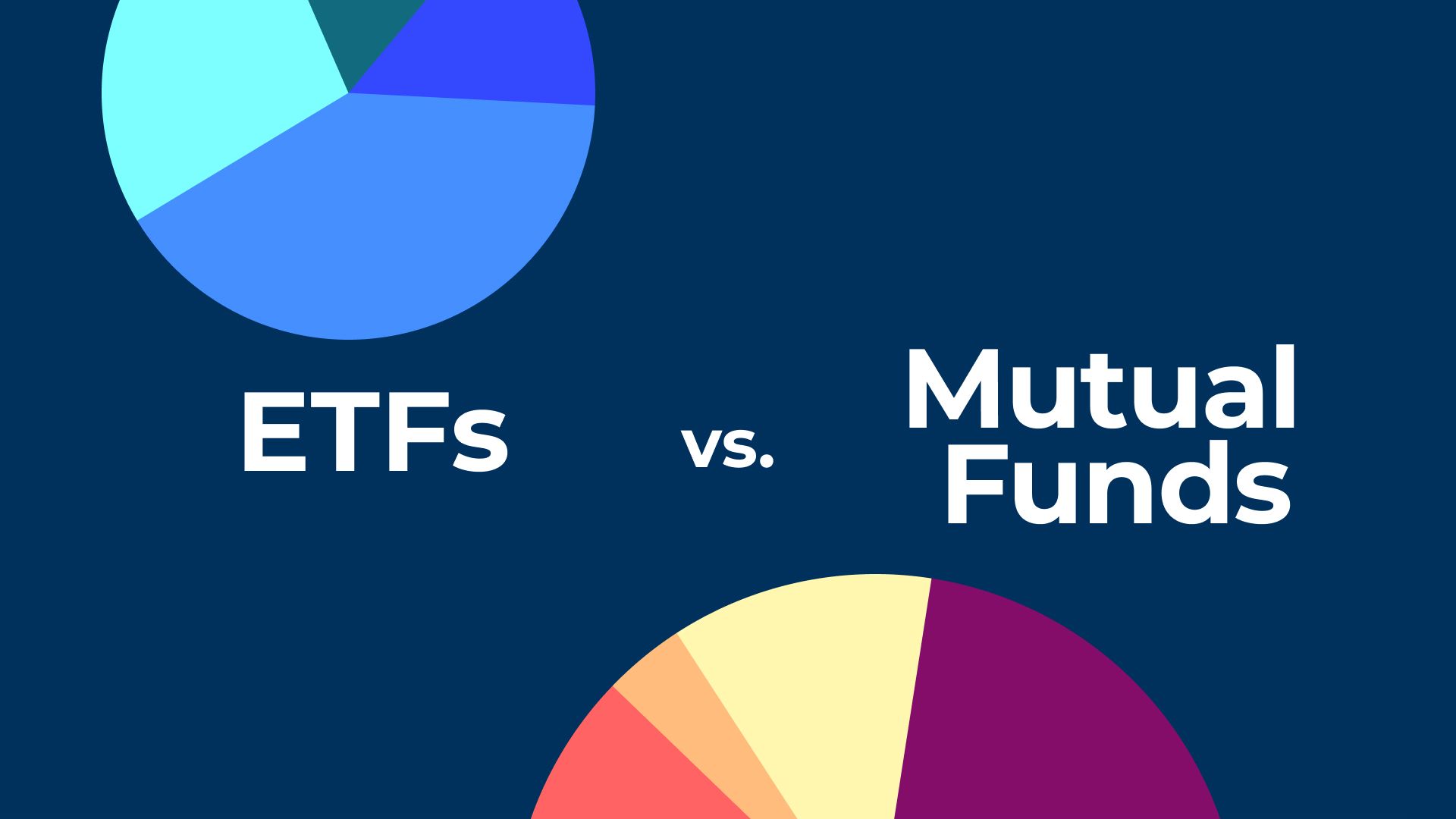Understanding the Differences Between a Mutual Fund & an ETF
Understanding the Differences Between a Mutual Fund and an ETF
Posted by Ethan Ball, CRPC
Serving Cedar Rapids, Iowa, and Surrounding Areas.
Understanding the Differences Between a Mutual Fund and an ETF
When planning for retirement, choosing the right investment vehicle can make a significant difference in your long-term results. Two of the most popular options—mutual funds and ETFs (exchange-traded funds)—often appear similar at first glance. Both pool investor money to buy a diversified basket of assets, and both can play a role in building a retirement portfolio.
But here’s the thing: their differences in costs, flexibility, tax efficiency, and trading can impact your retirement strategy more than you might think.
In this article, I’ll break down mutual funds vs ETFs so you can decide which fits best into your financial plan. Whether you’re investing individually or as a couple planning your retirement income, understanding these nuances can help you save money, reduce taxes, and optimize returns.
Mutual Funds at a Glance
A mutual fund is a professionally managed investment vehicle that pools money from many investors to buy stocks, bonds, or other securities.
- How you invest: You buy mutual fund shares directly from the fund company or through a brokerage.
- When you can trade: Orders execute once per day, after the market closes, at the fund’s net asset value.
- Common uses in retirement: Long-term growth, diversification, and professionally managed portfolios without the need to pick individual stocks.
ETFs at a Glance
An ETF, or exchange-traded fund, is similar to a mutual fund in that it holds a basket of investments. However, ETFs trade on an exchange like a stock.
- How you invest: You buy ETF shares through a brokerage, just like you would a stock.
- When you can trade: Anytime during market hours, with prices fluctuating throughout the day.
- Common uses in retirement: Flexible, low-cost exposure to a wide range of asset classes, often with higher tax efficiency.
Key Differences Between Mutual Funds and ETFs
While they share the goal of diversification, here are the most important distinctions to know:
| Feature | Mutual Fund | ETF |
| Trading Frequency | Once per day after market close | Throughout the trading day |
| Fees | Higher expense ratios, possible sales loads | Lower expense ratios, no sales loads |
| Tax Efficiency | Can trigger more capital gains distributions | Generally more tax efficient |
| Minimum Investment | May require $500–$3,000+ | Buy as little as one share |
Costs and Fees
Why it matters for retirement: Over decades, even small differences in fees can significantly erode your nest egg.
- Mutual Funds:
- May charge expense ratios between 0.5%–1.5% or more.
- Some come with front-end or back-end sales loads—commissions paid when buying or selling.
- Actively managed funds may have higher costs to cover research and management teams.
- ETFs:
- Generally have lower expense ratios, sometimes as low as 0.03% for index ETFs.
- No sales loads, but you may pay a brokerage commission (though many brokers now offer commission-free ETF trading).
- Lower costs mean more of your returns stay invested.
Tax Efficiency 
If you have taxable investment accounts, taxes are one of the biggest drags on your returns.
- Mutual Funds: When fund managers buy or sell holdings, they can generate capital gains distributions—and you pay taxes on those gains, even if you didn’t sell your shares.
- ETFs: ETFs can avoid triggering most taxable events until you sell your shares, making them generally more tax efficient.
Why retirees should care: This flexibility lets you manage your taxable income—helping you keep Medicare premiums lower, avoid unnecessary taxes on Social Security, and stay in a favorable tax bracket.
Why ETFs Usually Beat Mutual Funds
When you stack ETFs and mutual funds side by side, ETFs win in three key areas:
- Lower Costs – More of your money stays invested instead of paying management fees.
- Better Tax Efficiency – You keep more of your gains instead of handing them over to the IRS.
- Greater Flexibility – You decide when and how to trade, giving you more control over your retirement withdrawals and rebalancing.
Over a 20- or 30-year retirement horizon, these advantages can mean tens or even hundreds of thousands of dollars more in your pocket.
Final Thoughts
When it comes to retirement investing, ETFs generally deliver more value, more control, and more after-tax wealth than mutual funds.
They’re built for efficiency, they’re investor-friendly, and they let you decide how and when to take gains—critical in retirement when income planning and tax management matter most.
While mutual funds still have their niche, the shift toward ETFs isn’t just a trend—it’s a reflection of how modern investors want to grow and protect their money. For most retirees and pre-retirees, making ETFs the backbone of your portfolio is one of the smartest investment moves you can make.
Schedule Your Free Financial Strategy Session
Email us at info@iowaretirementsolutions.com
Call us at 319-423-3332
Click here to schedule your free consultation.
Investment advisory services are offered through Fusion Capital Management, an SEC registered investment advisor. The firm only transacts business in states where it is properly registered or is excluded or exempted from registration requirements. SEC registration is not an endorsement of the firm by the commission and does not mean that the advisor has attained a specific level of skill or ability. All investment strategies have the potential for profit or loss.




